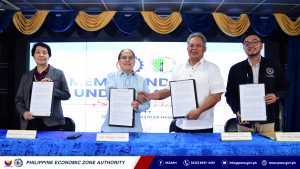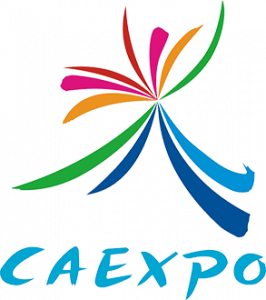Following the impressive growth of foreign direct investment (FDI) inflows in the country last year, the Philippine Board of Investments (BOI) remains upbeat that investment projects and business activities will continue to pour in given the country’s sound macroeconomic fundamentals and the solid optimism and confidence of international investors who are unfazed by external factors.
The Bangko Sental ng Pilipinas (BSP) reported yesterday that net inflow of FDIs for 2016 reached US$7.93 billion, a 40.7 percent increase from the US$5.64 billion recorded for 2015. The figure surpassed by 18.4 percent the US$6.7 billion mark earlier projected by the BSP.
Focusing on FDIs registered with Investment Promotion Agencies (IPAs), the BOI, the country’s lead investment promotion agency, contributed 22.5 percent or US$1.78 billion (PhP89.3 billion) of the total FDIs recorded in 2016. BOI’s foreign investment projects in 2016 is 50 percent higher than the PhP59.5 billion in recorded in 2015.
Trade Secretary and BOI Chairman Ramon Lopez said the foreign investment level in the second semester of last year was almost double than that of the first semester, clearly indicating the growing foreign investors’ confidence in the country’s sound economic policies, and attractive business environment.
“What further makes the Philippines attractive are plans of the Duterte administration to ramp up infrastructure spending that is seen to increase economic activities, the country’s demographic dividend and high-skilled, fast-leaner workforce, and the strategic location of the country, which can serve as a gateway to the rest of the Asean market,” Secretary Lopez said.
Trade Undersecretary and BOI Managing Head Ceferino Rodolfo meanwhile said the BOI is seeing a bullish first full-year local and foreign investment inflow of the administration with growth forecast of 13.7 percent to P500 billion from P441 billion achieved in 2016.
He said that the agency is eyeing its highest investment level to mark its 50th Founding Year, hence “P500 billion for BOI@50”.
With the swift and early approval of the 2017 Investments Priorities Plan (IPP) which was designed to spread the benefits of the country’s fast economic growth to the countryside with emphasis on a broader segment of the manufacturing sector, innovation-driven, and job-generating businesses, Undersecretary Rodolfo said BOI sees a robust growth of manufacturing investment projects this year. The manufacturing sector generated a total of PhP49 billion investments in 2016 or 11 percent of total investments last year.
About 80 percent of BOI projects last year were sourced from the Filipino business while foreign investors account for 20 percent. Undersecretary Rodolfo however said “there are good investment prospects from both new and traditional sources such as China, Japan, Russia, among others who President Duterte have constantly pitched in recent state visits, investor roadshows and missions, and official investment, trade, and economic meetings.
The Joint Commission on Trade and Economic Cooperation between the Philippines and Russia recently conducted its pre-inaugural meeting in Manila in preparation for the President’s visit to Moscow this month. A bilateral platform for discussion to enhance trade and economic cooperation, the JCTEC covered cooperation in the areas of energy, infrastructure, science and technology industry development, aerospace, tourism, electronics, IT-BPM, agri-fishery, metallurgy, iron and steel and agribusiness.
Also, just last week, the Philippines and China concluded its 28th Joint Commission on Economic and Trade Cooperation (JCETC) meeting in Manila after the two countries’ last meeting in 2011. The JEC was productive for both countries evident in the numerous investment and trade agreements firmed up during the meeting. Prior to the JCETC, Chinese businessmen expressed confidence in Philippine investment prospects as five Chinese companies presented recently their Letters of Intent to BOI, signifying their keen interest in further exploring business opportunities in the country’s aviation, oil downstream, renewable energy, iron and steel, and shipbuilding/ship repair industries. The reconvening of the Philippines-China JCETC and the LOIs secured from the Chinese companies were a result of President Duterte’s visit to Beijing last year. Likewise to be signed this week are Purchase Contracts by Chinese companies from Filipino exporters which is about US$1 billion.
The successful state visits of President Duterte in Japan and Prime Minister Abe in the Philippines are also already bearing fruit as Japanese bank Ogaki Kyoritsu Bank (OKB) initiated an investment forum in the Philippines recently. OKB is the first Japanese regional bank in the Philippines to secure a license to operate as representative bank from the BSP. OKB is based in the Tokai region where most multinational investors to the Philippines such as Ibiden, Toyota Motor Corporation, and Brother Industries Limited are holding headquarters.







